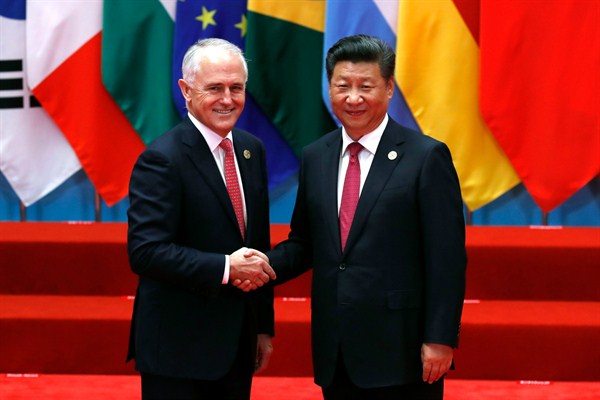In early December, four new bills were introduced in the Australian Parliament that together represent the most sweeping proposed changes to the country's national security laws in decades. In supporting their passage, Australian Prime Minister Malcolm Turnbull referenced Soviet spying in Australia decades ago. "The threat we face today is greater than when Soviet agents penetrated the federal government during World War II and the early years of the Cold War," he warned.
The four bills have all been submitted for review to the Parliamentary Joint Committee on Intelligence and Security, which is expected to report its recommendations and any alterations in March. The bills would then proceed to a full vote and, in all likelihood, become law.
This package of legislation would establish new domestic security and counterintelligence bodies under the Department of Home Affairs, while amending existing laws and introducing new penalties for espionage, treason, sabotage, the handling of sensitive information and trade secrets, and foreign interference with the democratic and political rights of Australians. The legislation is also expected to ban nearly all foreign donations to Australian entities deemed to be "political campaigners." That term, as defined in the Foreign Interference Transparency Scheme Bill, seems to apply not only to politicians and political parties, but also more broadly to individuals and organizations that seek to shape political outcomes through lobbying and advocacy.

